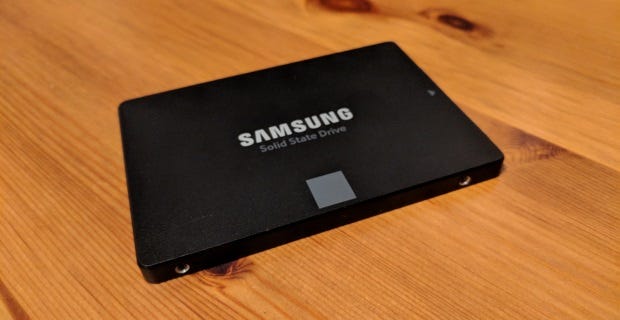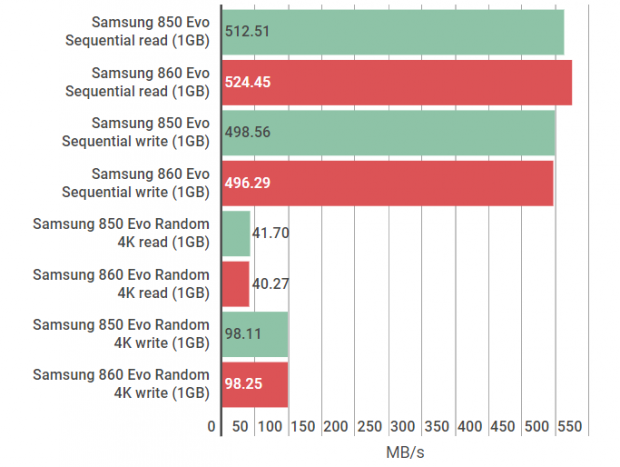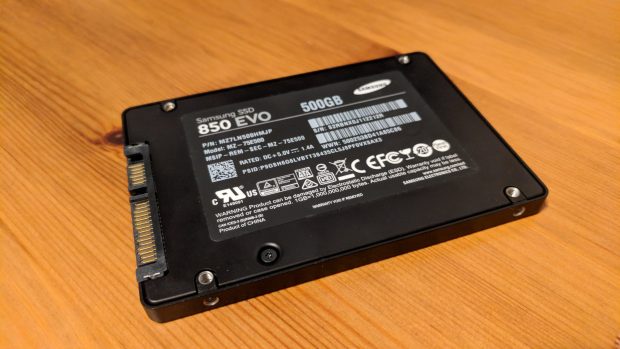Samsung 850 Evo review: Still a great SSD for those in the UK
Storage wars
The Samsung 850 Evo is one of the most popular SSDs around, and with good reason. Thanks to its blistering speeds, five-year guarantee and best-in-class endurance rating, it's sat near the top of most SSD roundups ever since it first came out at the end of 2014. If your PC's been feeling a bit sluggish lately, then the Samsung 850 Evo will almost certainly give it a much-needed boost.
Having said that, Samsung's just replaced the 850 Evo with the newer 860 Evo. There's not actually a huge amount of difference between them speed-wise, but the 860 Evo doubles down on the 850 Evo's already excellent endurance levels and takes it to the next level. That's not to say you shouldn't still consider a Samsung 850 Evo, though, as those in the UK will find it a much better buy than its newer sibling. In the US, it's a different story, as 850 Evo stock has pretty much already dried up, making the 860 Evo the obvious choice. Still, if you're looking for a new SSD and live in the UK, then read on, as the 850 Evo is still a pretty tough act to beat while it's still available.
More affordable than its closely related sibling, the Samsung 850 Pro, the 850 Evo is still pretty damn fast, with Samsung claiming sequential read and write speeds of up to 540MB/s and 520MB/s respectively. Admittedly, those figures require a bit of fiddling with Samsung's additional features, but even with its TurboWrite tech and Rapid mode left switched off, I recorded a sequential read speed of 512.51MB/s and sequential write speed of 498.56MB/s in the AS SSD benchmark.
That said, sequential read and write speeds aren't really the best indicator of real-world performance. This is because, as the name implies, sequential tests read and write files in a neat little line one after the other in adjacent locations. Most of the time, though, SSDs function a bit like a messy bedroom, with files thrown haphazardly into any available nook and cranny with no rhyme or reason to their overall placement. As a result, random tests are a much better gauge of how fast an SSD's actually going to be in everyday use. The catch is that these results are quite a bit slower than sequential speeds, and Samsung helpfully doesn't provide these sorts of figures because they're not the equivalent of an SSD show home.
Indeed, the 850 Evo's random 4K test results, where it reads and writes 1GB of randomly selected 4KB files across the SSD, don't make for great reading by comparison, coming in at just 41.70MB/s read and 98.11MB/s write. However, while the figures themselves don't look amazing on paper, they're still pretty much neck-and-neck with the 860 Evo, as you can see below.
The Samsung 850 Evo also wasn't far behind in CrystalDiskMark's more strenuous random 4K 8-queue-8-thread test, which mimics the kind of workload you might see on a server or workstation. Here, the 850 Evo managed a read time of 401.1MB/s and a write time of 360.0MB/s, while the 860 Evo just edged ahead with 403.3MB/s and 360.5MB/s.
As a result, you'd probably be perfectly happy choosing either SSD for your PC, as I think you'd be hard-pushed to tell the difference in overall speed or OS responsiveness. Instead, it really comes down cold hard cash, as there's no point paying over the odds for a fast SSD when a potentially cheaper one can do the same job just as well.
In the UK, the 850 Evo is the clear choice, costing £80 for 250GB and £122 for 500GB. By contrast, the 860 Evo costs £90 for 250GB and £162 for 500GB, with prices only getting further apart as you go beyond 1TB. In the US, however, the 850 Evo is almost impossible to get hold of now, making the 860 Evo the winner by default.
Those looking for a real bargain should probably also consider the Crucial BX300, but at this end of the spectrum the 850 Evo is still a great buy when faced with the likes of the marginally slower Crucial MX500 and slightly cheaper WD Blue 3D NAND. Get one now before it's gone forever.



